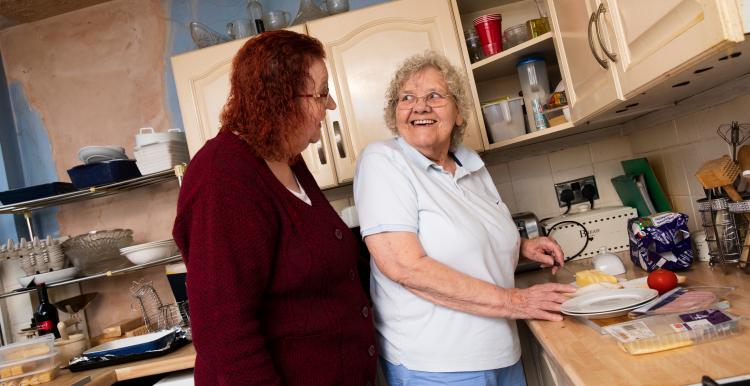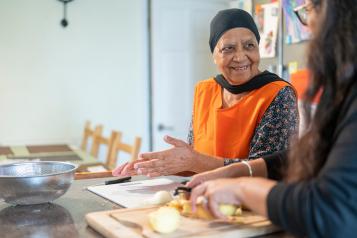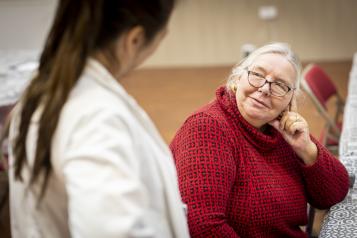Emma's story: "I miss going out, meeting people, and just having someone to talk to”

On a chilly London afternoon in the late 1950s, Emma stepped into her local pub, never imagining it would change her life forever. A quick drink led to a chance meeting with Thomas, the man who would become her husband. For the next 63 years, they shared a life together with laughter and companionship. But 18 months ago, Emma’s world changed. Thomas passed away, and her life suddenly felt empty. “We always used to go out,” she reflects. “I miss him terribly after being married all those years.”
Emma now 86, is no stranger to loss. Many of her friends are gone. “They were all my age. I have no one left,” she explains. “I only have a daughter who lives far away. She tries to call, but it’s not the same as going out and meeting people. It’s very lonely all the time.” Emma says. Her daughter, Elaine, though loving, lives many miles away.
Last year, a stroke left Emma housebound, cutting her off from the things she once enjoyed: visiting friends, having a cup of tea in a café, walking to the local park, or even just having a conversation with someone.
I miss going out, meeting people, and just having someone to talk to.
For Emma, loneliness has become her companion. She spends most days sitting in silence, with the TV on to create a feeling of company.
Emma was referred by Live Well to the Healthwatch Greenwich befriending service. “I thought, I might as well take it up and see what it is,” she says. “It might just be nice to have someone to talk to.” Each week, her befriender would visit. Over cups of tea, they shared stories, and for a few hours, Emma felt a part of the world again.
The important thing is knowing that someone will visit, that I don’t have to sit here in silence all day watching TV. I really enjoy talking to my befriender and finding out what they have been doing.
For Emma, these visits were everything.
3.8 million people are experiencing chronic loneliness in the UK. Like Emma, they often or always feel lonely. Prolonged loneliness is a serious concern, it can increase the risk of early death by as much as 26%, with effects on health comparable to smoking or obesity.
For many people, services like befriending offer more than companionship—they restore connection and give a sense of purpose. Emma's story is not just her own; it reflects the experiences of many. For those without family or friends, social isolation can become an all-consuming reality.


